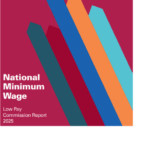
Early years entitlement rollout to face future challenges
According to a new National Audit Office (NAO) report the early years entitlement faces future challenges as the rollout continues under an ambitious timetable.
The Government’s expansion of the early years entitlement, aimed at increasing the labour market by helping mothers return to work is on track for the first phase of the rollout in April. Out of the 246,833 codes issued to parents in April for funded places, 195,355 (79%) have been validated by providers. The Department for Education expects this figure to stabilise around 85%, but the timescale for this is not yet known.
But continuing concerns and uncertainties around staffing and sector sustainability suggests that achieving key milestones in the future could be ‘problematic’, as acknowledged by the DfE.
By September 2025 the DfE estimates that 85,000 new places will be needed to satisfy demand compared to 7,000 additional places in April 2024. And a DfE survey carried out in March 2024 of local authorities found that out of the 15,500 additional places needed by September 2024, only one third (34%) felt confident in meeting this requirement.
The NAO report highlights concern around the impact of rapid growth on the sector as it responds to the demand for additional childcare places and sights quality of provision and quantity of places for vulnerable children most at risk.
Purnima Tanuku OBE, Chief Executive of National Day Nurseries Association (NDNA) said: “While increased investment in children’s early education and care has the potential to massively improve their outcomes and help families and the economy, this policy was rolled out without consulting councils, providers and parents.
“The phased introduction was important given the numbers of places and staff needed within the sector. However, years of chronic underfunding have held providers back in any plans to expand. The data shows that the majority of funded places this year will be children already in places within settings.
“Providers are working hard to deliver the places that families need and to maintain quality but with high turnover of staff and the need to recruit, we need to see more support from the government to the sector.
“The potential for the policy to negatively impact on children from disadvantaged backgrounds and with additional needs has been a concern from the start. Without the right financial resources and the necessary access to support services alongside funded early education, providers can be left facing the financial costs of supporting children’s individual needs.
“The policy has to have children at its heart to make sure it delivers the best possible outcomes for them. While the policy has the potential to positively impact our economy, as the report highlights, this cannot be done at the expense of quality or other policy aims to improve support for all children.”
The NAO report recommends setting interim milestones, and planning contingency given the challenging timetable.
For the DfE to increase its chances of meeting forthcoming milestones the NAO suggests ‘it should commit to continuing to monitor the implementation of the new entitlements, so the expansion does not negatively impact or displace those children who may be more challenging or costly to support.’
Additional recommendations include ‘measuring the impact that interventions, including revised funding rates, have on staff and early years places, to understand how the programme may need to change to achieve the next two milestones and its longer-term outcomes.’
Speaking on BBC Radio 4’s Today programme about the September 2025 deadline, Cara Brundle, Director of Business Development at the National Day Nurseries Association said:
“We are concerned about the sectors ability to meet that deadline and crucially this policy really does need to translate into more high-quality early education and care for children from all backgrounds and that can only happen if we have the right workforce in place and that’s going to require time and planning as well as some investment.”
- England
Similar Articles
Government research shows school-based nurseries are not delivering flexible provision to its communities

One in seven childcare professionals paid around minimum wages


